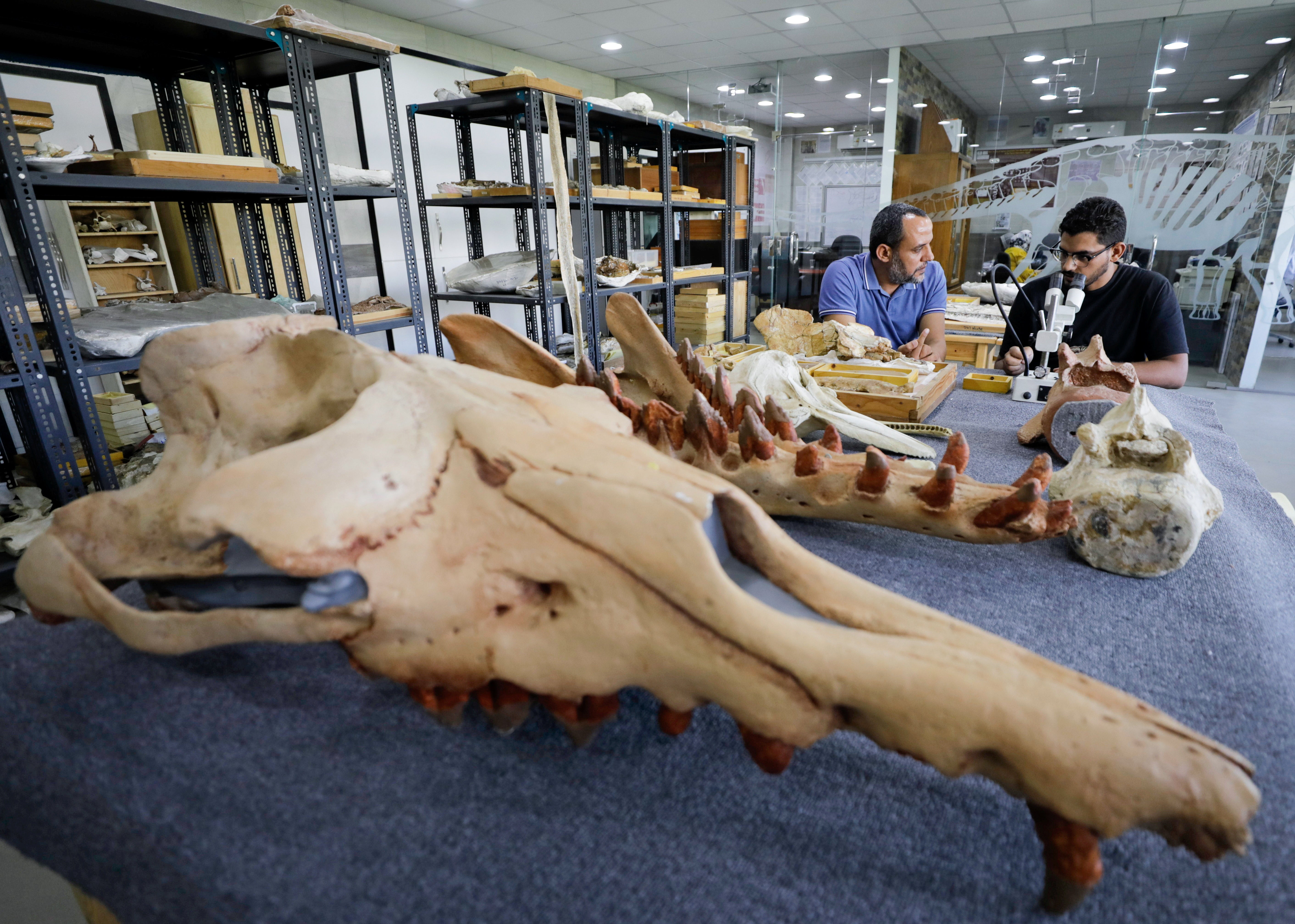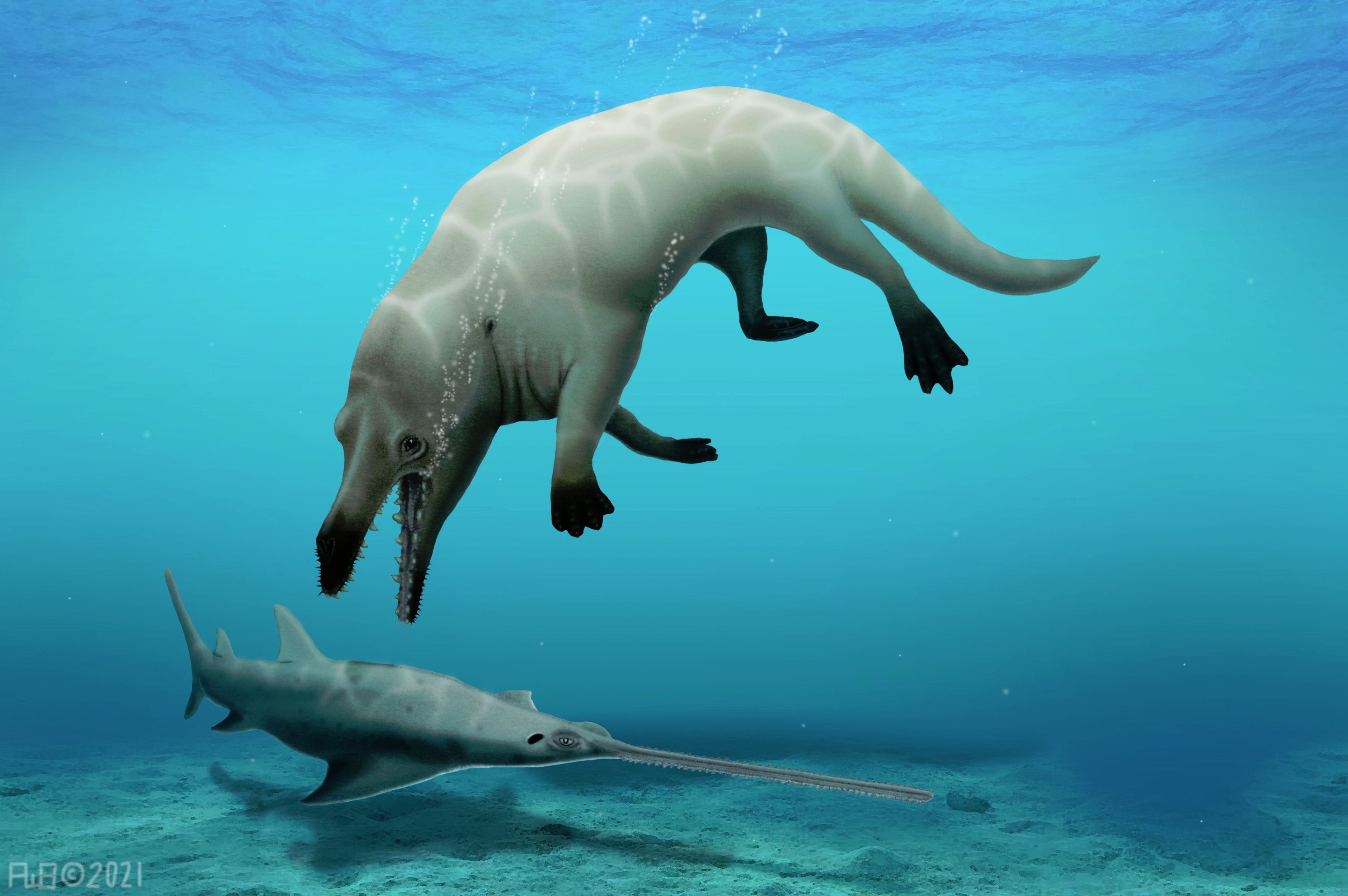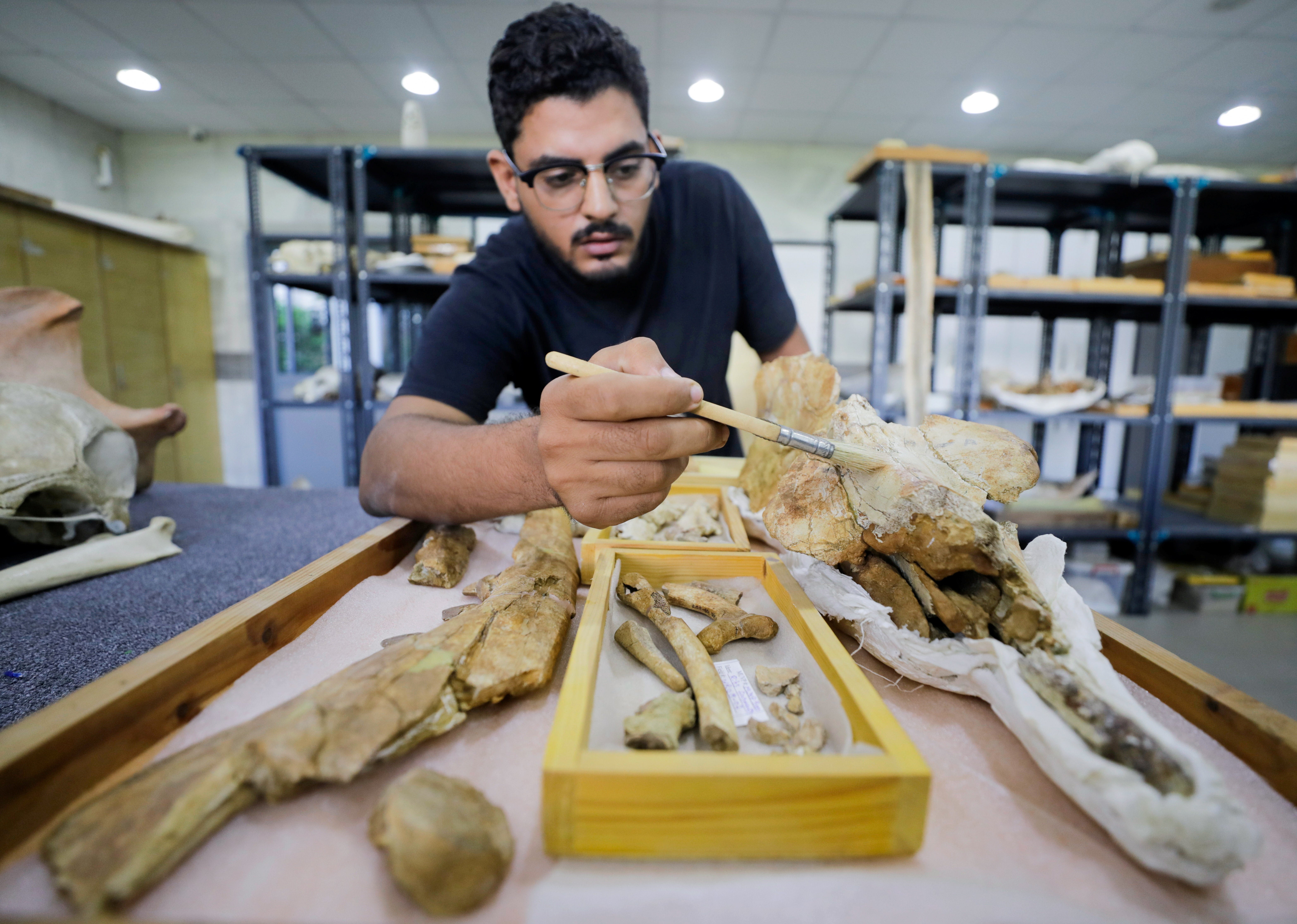Ancient four-legged whale found in Egypt named after god of death
Scientists have named a newly-discovered species of four-legged whale Phiomicetus anubis after the ancient Egyptian god of death

Scientists have discovered a new species of four-legged whale that lived around 43 million years ago.
A partial fossil of the creature was discovered in Egypt’s West Desert and named Phiomicetus anubis because of its skull’s resemblance to that of the ancient jakal-headed god of death Anubis.
The discovery is critical to helping scientists understand whales’ transition from land to sea, researchers say.
Like hippos, whales evolved from four-legged hoofed animals that lived on earth around 50 million years ago.

The fossil is the earliest known whale from Africa from the Protocetidae, a group of extinct whales that fall in the middle of their transition from the amphibian to fully aquatic.
“Phiomicetus anubis is a key new whale species, and a critical discovery for Egyptian and African paleontology,” Abdullah Gohar, lead author of a paper on the discovery published in the journal Proceedings, told Reuters.
His co-author Mohamed Sameh added that the whales of this period, which have until now largely remained a mystery, “range from the semiaquatic crocodile-like whales to giant fully aquatic whales”.

In life, the Phiomicetus anubis would likely have been a top predator, researchers say, measuring around 10 feet and weighing more than half a tonne.
Its remains were unearthed from the Eocene rocks in the Fayum Depression in the Western Desert, which was once covered by sea.
The fossil has since undergone study at the Mansoura University Vertebrate Palaeontology Centre in west Egypt where it will continue to be researched.
Join our commenting forum
Join thought-provoking conversations, follow other Independent readers and see their replies
Comments
Bookmark popover
Removed from bookmarks